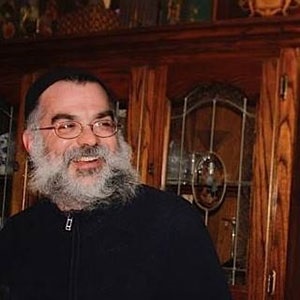Contributor Spotlight: Eric Maroney
 Eric Maroney’s story “Uncertain Origins” is featured in Issue 71 of the Bellingham Review.
Eric Maroney’s story “Uncertain Origins” is featured in Issue 71 of the Bellingham Review.
What would you like to share with our readers about the work you contributed to the Bellingham Review?
Uncertain Origins was a conscious attempt to write a new kind of story. I am deeply drawn to stories with Jewish themes and issues, and I wanted to write a story completely divorced from those concerns. So I completely stripped Uncertain Origins of any and all cultural or linguistic signifying features. The characters do not have names, and the language being translated is never identified. Even the time, place and location of the action are not revealed. It could be the past, present, or future. I wanted to write a story which stood or fell on the merits of storytelling, without relying on scenic embellishment or cultural memories. I did this to get at the bedrock of storytelling – to learn, once again, what it is like to write without familiar crutches.
Tell us about your writing life.
From an early age I was an irregular journal writer – but 1999 was a pivotal year for me. Certain things fell away, and others appeared, and I began to write a daily journal (a practice I continue, nearly 17 years later). Journal writing is a subjective enterprise, but eventually it led me to look at writing as a craft, and not merely as confession. So I began to experiment with other forms of writing: non-fiction, the novel, the short story, even poems. For years I wrote, received feedback from a good writer friend, and just put the works into a virtual drawer. But in 2006 I wrote a non-fiction book about religion, looked for a publisher, and got a contract. The first thing I tried to have published was that book – and it worked! At that point, my situation as a writer evolved. Suddenly, I could write with a wider audience in mind. That first contract combined with a sometimes manic drive to write about normal things in an abnormal, interesting way, kept me writing. If I have any unifying theme to my writing – and this is in both fiction and non-fiction – it is the human encounter with that bizarre barrier between the known and the unknown. This boundary space manifests itself in many ways in my work, and I’ve tried to explore it in my writing from as many vantage points as possible.
What writing advice has stayed with you?
Always write, every day – even if it is only taking notes on ideas or writing in a journal. A writer should write even when the urge is not present. One never knows what sort of role some notes, ideas, a journal entry, or a page with a few sentences scrawled in the margins will have on some more inspirational day.
Which non-writing aspect(s) of your life most influences your writing?
I am deeply committed to religious Judaism, and over the years, that element, which has grown and evolved in me, finds its way into most of my work. I am very influenced by the early Chasidic movement’s practice of retreating into nature for meditation and prayer. This kind of non-synagogue Jewish convention often places me in the forests and fields surrounding my home – and in a real way, those places are the grounding of both my writing and spiritual life. I believe that the pulse beat of the divine can often best be discerned in the open air of nature.
What is your favorite book (or essay, poem, short story)? Favorite writer(s)?
American Pastoral, by Philip Roth, is both my favorite book, and by my favorite writer. His work freed me from conventions I found shackling and he writes with great care and precision about difficult topics. His Zuckerman trilogy from the 1990s (I Married a Communist, The Human Stain, and American Pastoral) illustrate this. They are works that do not flinch or equivocate.
What are you reading right now?
War, So Much War, by the Catalan language writer Merce Rodoreda.
What project(s) are you working on now, or next?
I continue to write short fiction nearly every day, but I am working on a longer, non-fiction work called Alone is Jacob’s Tent. It explores the little known history of Jewish religious recluses and monastics. Judaism tends to be a deeply communal religion – so this book, I believe, will throw needed light on a previously unexplored element of one of the world’s great religions.
Anything else our readers might want to know about you?
I have a wide range of activities that, when listed sequentially, make it appear like I have no fixed psychological center: fresh water fishing, reading ancient mystical books, target shooting with an air gun, near daily meditation, serially watching documentaries on war, and searching for (but never finding) the perfect black cardigan. All this must contain a connecting thread – but I can’t see it.
Where can our readers connect with you online?
My website continually updated with my published writings:
https://sites.google.com/site/ericmaroney1/
I have also blogged since 2009:
http://wwwtherighttowrite.blogspot.com/
This blog contains book reviews, occasional observations, B side stories, poems, photos, occasional ramblings, and a short novel.
ERIC MARONEY is the author of two books of nonfiction, Religious Syncretism (2006) and The Other Zions (2010). His fiction has appeared in over a dozen journals. His nonfiction has appeared in the Encyclopedia of Identity, The Montreal Review, and Superstition Review. He is a regular fiction and non-fiction reviewer for The Colorado Review. His story, “The Incorrupt Body of Carlo Busso” was the runner up for the 2011 Million Writers Award. He has an M.A. from Boston University and lives in Ithaca, NY, with his wife and two children. More of his work can be found on his web page.